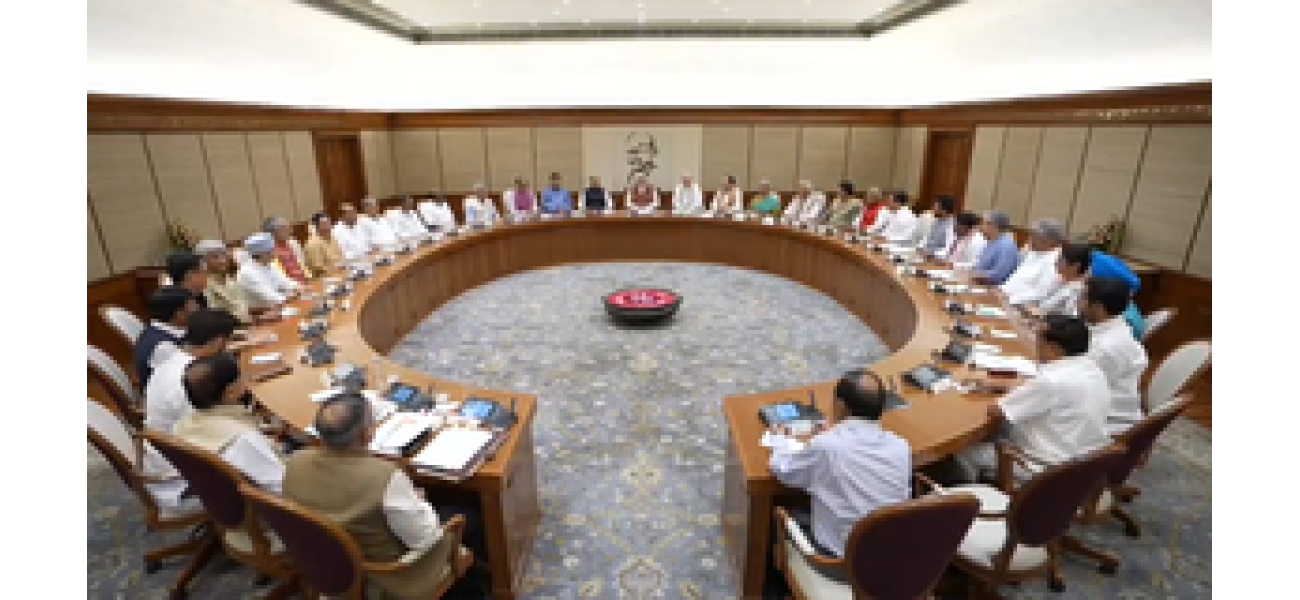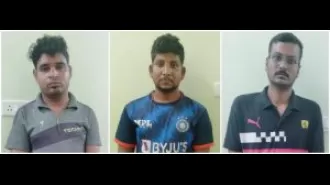Proposal for synchronized elections receives support from 32 parties and opposition from 15.
32 parties support "one nation, one election" idea, 15 do not, per former president Ram Nath Kovind. He discussed the proposal at Lal Bahadur Shastri Memorial Lecture on Oct 5.
December 12th 2024.

New Delhi - On October 5th, former president Ram Nath Kovind delivered the 7th Lal Bahadur Shastri Memorial Lecture on the topic of "Simultaneous Elections". In his speech, Kovind revealed that during the consultation process for 'one nation, one election', 47 political parties had presented their views to the Committee. Out of these, 32 parties expressed their support for simultaneous elections, while 15 parties did not. However, Kovind noted that many of the 15 parties had previously shown their support for the idea at some point in the past.
The proposal for simultaneous elections has been a topic of much discussion and debate in recent times. On Thursday, the Union Cabinet approved bills to implement this concept, and the draft legislations are expected to be introduced in Parliament during the ongoing Winter session.
According to the report submitted by the high-level committee headed by Kovind, the majority of the political parties that supported the idea of simultaneous elections believed that it would help save scarce resources, protect social harmony, and stimulate economic development. However, the Congress, Aam Aadmi Party, Bahujan Samaj Party, and the Communist Party of India were among the national parties that opposed the proposal. On the other hand, the Bharatiya Janata Party and the National People's Party showed their support for it.
The report also highlighted some concerns raised by those who opposed the idea of simultaneous elections. These included fears that it could violate the basic structure of the Constitution, be anti-democratic and anti-federal, marginalize regional parties, and lead to a presidential form of government. Among the state parties, the AIUDF, Trinamool Congress, AIMIM, CPI, DMK, Naga People's Front, and SP were among those that opposed the proposal.
During an all-party meeting in 2019, which was attended by 19 political parties to discuss critical reforms in governance, holding simultaneous elections was one of the issues discussed. Out of the 19 parties, 16 had favored the idea, while only three had opposed it. The parties that showed their support for the proposal were the BJP, Nationalist Congress Party, Janata Dal, YSR Congress, Biju Janata Dal, Bharat Rashtra Samithi, Lok Janashakti Party, Shiromani Akali Dal, Apna Dal, All Jharkhand Students' Union, Sikkim Krantikari Morcha, National Democratic Progressive Party, National People's Party, People's Democratic Party, Rashtriya Loktantrik Party, and Republican Party of India. On the other hand, the CPI, AIMIM, and RSP were the only parties that had opposed it.
In conclusion, while the idea of simultaneous elections has received support from a majority of political parties, there are still concerns and debates surrounding its implementation. The draft legislations for 'one nation, one election' will now be introduced in Parliament, and it remains to be seen how the discussions and debates unfold.
The proposal for simultaneous elections has been a topic of much discussion and debate in recent times. On Thursday, the Union Cabinet approved bills to implement this concept, and the draft legislations are expected to be introduced in Parliament during the ongoing Winter session.
According to the report submitted by the high-level committee headed by Kovind, the majority of the political parties that supported the idea of simultaneous elections believed that it would help save scarce resources, protect social harmony, and stimulate economic development. However, the Congress, Aam Aadmi Party, Bahujan Samaj Party, and the Communist Party of India were among the national parties that opposed the proposal. On the other hand, the Bharatiya Janata Party and the National People's Party showed their support for it.
The report also highlighted some concerns raised by those who opposed the idea of simultaneous elections. These included fears that it could violate the basic structure of the Constitution, be anti-democratic and anti-federal, marginalize regional parties, and lead to a presidential form of government. Among the state parties, the AIUDF, Trinamool Congress, AIMIM, CPI, DMK, Naga People's Front, and SP were among those that opposed the proposal.
During an all-party meeting in 2019, which was attended by 19 political parties to discuss critical reforms in governance, holding simultaneous elections was one of the issues discussed. Out of the 19 parties, 16 had favored the idea, while only three had opposed it. The parties that showed their support for the proposal were the BJP, Nationalist Congress Party, Janata Dal, YSR Congress, Biju Janata Dal, Bharat Rashtra Samithi, Lok Janashakti Party, Shiromani Akali Dal, Apna Dal, All Jharkhand Students' Union, Sikkim Krantikari Morcha, National Democratic Progressive Party, National People's Party, People's Democratic Party, Rashtriya Loktantrik Party, and Republican Party of India. On the other hand, the CPI, AIMIM, and RSP were the only parties that had opposed it.
In conclusion, while the idea of simultaneous elections has received support from a majority of political parties, there are still concerns and debates surrounding its implementation. The draft legislations for 'one nation, one election' will now be introduced in Parliament, and it remains to be seen how the discussions and debates unfold.
[This article has been trending online recently and has been generated with AI. Your feed is customized.]
[Generative AI is experimental.]
0
0
Submit Comment





